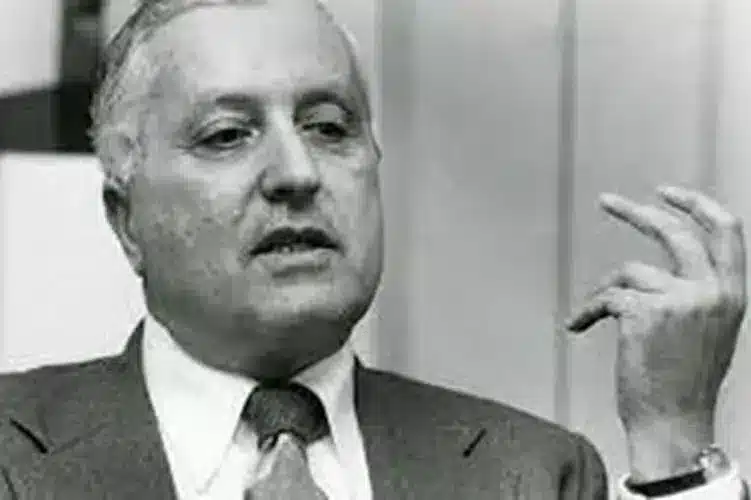Ilya Prigogine: Pioneer of Chaos Theory and Complex Systems

Ilya Romanovich Prigogine (25 January 1917 – 28 May 2003) was a physical chemist. He received the Nobel Prize in Chemistry.
Life and Career
He was born on 25 January 1917, in Moscow, Russian Empire. He was interested in music, history, and archaeology as a kid. He studied science at the Université Libre de Bruxelles and earned his undergraduate and postgraduate degrees in chemistry. He got his doctorate in 1941 from the Free University of Brussels, where he became a professor in 1947.
He started teaching at the University of Texas at Austin in 1959. Later, he became a Regental Professor and Ashbel Smith Professor of Physics and Chemical Engineering at Texas. He became director of the Solvay International Institute of Physics and Chemistry in 1962. From 1967 until his death, he was also director of the University of Texas Center for Statistical Mechanics and Thermodynamics. In 1967, he co-founded the Center for Thermodynamics and Statistical Mechanics, now known as the Center for Complex Quantum Systems in Austin. He made a lot of significant discoveries in the 1960s after he got into research after World War II. Ilya Romanovich Prigogine died on 28 May 2003, in Brussels, Belgium.
Major Works
Working with his colleagues R. Balescu, R. Brout, F. Henin, and P. Resibois, he developed mathematical models and non-equilibrium statistical mechanics to explain how chemical reactions can produce complex patterns. Prigogine’s work on the application of the second law of thermodynamics to living organisms was especially important. The law states that in any isolated physical system, order inevitably dissolves into decay. According to Pregogine, nonlinear systems (or dissipative structures, as he called them) can go through periods of instability and then self-organization as long as they receive energy and matter from external sources. This results in more complicated systems that can’t be predicted except statistically. From physical chemistry to biology, Prigogine’s work influenced new disciplines like chaos theory and complexity theory.
With Robert Herman, he developed the two-fluid model, a macroscopic model for traffic flow in a city/town or metropolitan area, similar to the two-fluid model in classical statistical mechanics. He studied the fundamental role of indeterminism in nonlinear systems on both a classical and quantum level later in his career. He proposed an extension of quantum mechanics to Liouville space with his colleagues. In 1997, he also co-founded CODE, the International Commission on Distance Education.
Award and Legacy
in 1997, he received the Nobel Prize in Chemistry “for his contributions to non-equilibrium thermodynamics, particularly the theory of dissipative structures”.
Observer Voice is the one stop site for National, International news, Sports, Editor’s Choice, Art/culture contents, Quotes and much more. We also cover historical contents. Historical contents includes World History, Indian History, and what happened today. The website also covers Entertainment across the India and World.

